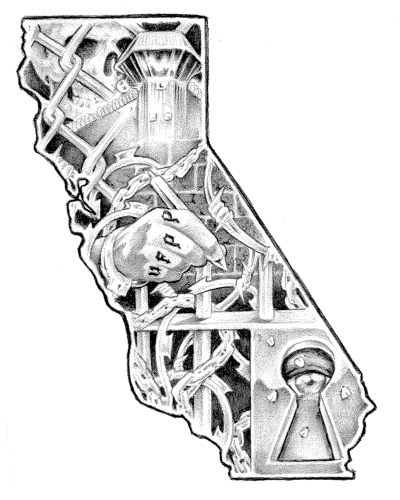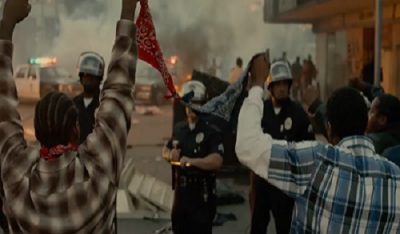
What is the Third World?
A USW comrade asks:
Recently I was having a conversation here
with someone about the “Third World.” This person didn’t think
all of Africa, Asia & Latin America was still the “Third
World.” I wasn’t totally sure. He also asked exactly what qualifies a
country for Third World status. I had no answer, he asked someone
outside prison who looked online and stated all Latin America is still
Third World but China was now considered “Second World,” is this true?
Can you send me an article on “Third World” - past, present, and future?
Thank you.
MIM(Prisons) responds: The use of the terms First, Second and Third World arose during the Cold War, when the Western imperialist-led block was referred to as the First World, the communist block was the Second World, and the Third World were the so-called non-aligned countries who were also the most exploited and underdeveloped countries by design.
Mao Zedong put forth an alternative assessment of the world using these terms. By this time the Soviet Union had clearly gone back on the capitalist road. So while the West saw the Soviet Union as communist, China saw it correctly as imperialist. Mao therefore labeled the two superpowers, U$A and the Soviet Union, as the First World. He grouped other imperialist countries as the Second World, which he saw as potential allies against the First World. Then the exploited countries he saw as the Third World, including socialist countries like China itself.
Today, the general usage of the term Third World is more consistent and it is closer to the way Mao defined it. It might be used interchangeably with terms like “exploited nations,” “oppressed nations,” “underdeveloped countries,” “periphery” or “global south.” In 1974 Mao said, “The third world has a huge population. With the exception of Japan, Asia belongs to the third world. The whole of Africa belongs to the third world and Latin America too.”(1) To this day, this is probably the most common view of who is the Third World. But of course it is more nuanced than that.
It is worth mentioning the more recent use of the term Fourth World to refer to indigenous populations that are not really integrated into the capitalist world economy. This points to the reality that the vast populations that we might lump into the category of Third World can vary greatly themselves. The distinction is a more useful point when analyzing conditions within a Third World country than when doing a global analysis.
In the earlier years of the Soviet Union, Stalin summed up Lenin’s theory of imperialism and split “the population of the globe into two camps: a handful of ‘advanced’ capitalist countries which exploit and oppress vast colonies and dependencies, and the huge majority consisting of colonial and dependent countries which are compelled to wage a struggle for liberation from the imperialist yoke.”(2) This is how we view the world today, when there is no socialist block with state power. But we also know that historically the socialist USSR and socialist China both saw themselves in the camp of the exploited countries, or the Third World.
In our glossary, we define Third World as, “The portion of the geographic-social world subjected to imperialist exploitation by the First World.” If this is our working definition, we might choose to use the term “exploited nations” to be more clear. But this comrade brings up a good question asking about China. And it leads us to the question, is China still an exploited nation?
We will only superficially address this question here, but we think the obvious answer is “yes.” It was only recently that the peasantry ceased to be the majority in China. And after the destruction of socialist organizing in the mid-1970s, the conditions of the peasantry quickly deteriorated pushing people to leave their homelands for the cities. While urban wages have seen steady growth in recent years, even that masks a vast and diverse population. The average annual income of $9,000 puts an urban Chinese worker in the neighborhood of earning the value of their labor.(3) But the average is greatly skewed by the wealthy, and most workers actually make far less than $9,000 a year. Combine them with the almost 50% of the population in the rural areas and we’ve got a majority exploited population.
Another way to think about China as a whole is that it accounts for about 25% of global production.(4) Capitalism cannot function and pay over a quarter of the world’s productive labor more than the value they produce. Keeping all the value of your own labor (and more) is an elite benefit only granted to a tiny minority found almost wholly in the First World. There is really no feasible path forward that leads to the vast majority of Chinese people benefiting from imperialism when they make up almost 20% of the world’s people. This is a contradiction that Chinese finance capitalists must deal with.
While the modern interpretation of the term Third World tends to be a descriptive term for the conditions of that country alone, the definitions from the Cold War era actually defined Third World countries by how they relate in the global balance of power. To define a country as Third World is more meaningful when it is done to define its interests in relation to others. Can we count on the Chinese to take up anti-imperialism or not? Or, as Mao put it, who are our friends and who are our enemies? That is the important question.
While we see the makings of more and more revolutionary nationalist organizing by other nations against China in the future, we cannot put the Chinese nation in the camp of oppressor nations. It is our position that some 80% of the world are of the oppressed nations that oppose imperialism. Including China as an oppressor nation would push that number down near 60%. But the conditions in China just don’t support that categorization.
The bourgeois myth is that the world has been in a period of peace since the end of World War II. The MIM line has always been that World War III is under way, it’s just taken the form of the First World vs. the Third World, so First Worlders don’t worry about it so much. In recent years that has begun to change as witnessed in thinly veiled conflicts in places like Ukraine and Syria. In recent months we’ve seen U.$. and Russian military on the same battlefield, not on the same side. And both countries are gearing up to increase their militarys’ involvements in that war in Syria. This is the first time that the inter-imperialist contradiction has been so acute since Gorbachev took power in the Soviet Union in 1985 and began the dissolution of the union in partnership with the Western imperialists.
Politically speaking, it would be reasonable to consider countries like Russia, as well as China, to be the Second World today, as they provide a counterbalance to the imperialist interests of the dominant imperialist powers of Europe, Japan and, most importantly, the United $tates. As such, Russia and China can play progressive roles as a side-effect of them pursuing their own non-progressive interests, because they challenge the dominant empire. However, we have not seen the term Second World used in this way, and you don’t really hear the term these days. Perhaps the growing inter-imperialist conflict will warrant its comeback.














